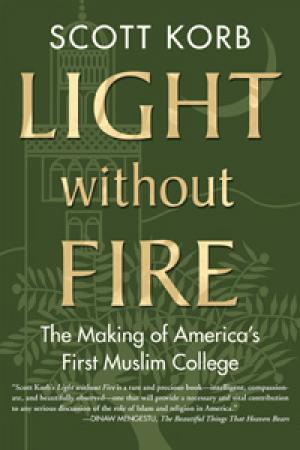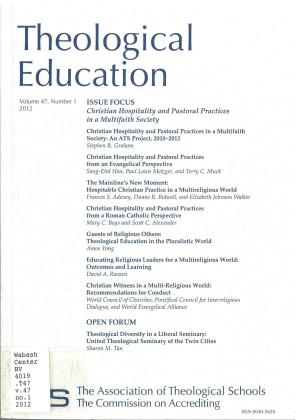Resources
The authors developed and co-taught a course on Korean indigenous spiritualities designed primarily for Korean Christians to reflect on whether such spiritualities might hold resources for their religious lives. Engaging students directly with the spiritual practices, texts, and representatives of the traditions, the course encouraged students to voice their understandings of these traditions on their own terms, and the extent to which they might hold resources for Korean Christianity. Starting each class session with pair discussions (in Korean, if desired), and then sharing the pair responses with the larger class for fuller discussion gradually developed intracultural interreligious openness to the Korean indigenous heritage. Two non-Korean students brought “outsider” questions and responses to the conversation. Students reported that the learning experience was successful and valuable.
Many theological schools use short term travel as a way to foster interfaith education. Due to their experiential, holistic, and intense nature, travel seminars focused on the promotion of interfaith learning can shape a future religious leader's outlook on religious communities across the course of her entire career. In this article I explore the pedagogical dimensions of travel seminars as a tool for interfaith education through the lens of a travel seminar to Israel and the occupied Palestinian Territories.
Seminary education is adjusting to the global realities of inter-religious encounter. An increasingly important element of equipping seminarians must be the ability to embrace two dimensions of mature faith; (1) deep convictions related to their own faith, and (2) genuine civility in their engagement with others. The practice of convicted civility is best learned experientially through participative assignments and close contact with people of other faiths. The article explores an approach by which students are encouraged to develop the capacity and skills to both address the faith issues that divide us and to respond to social issues that require the exercise of civility to live together peacefully. The experience of Fuller Seminary, an evangelical, multidenominational, and multiethnic institution provides a context for educating seminarians for convicted civility in a multifaith world.
This essay argues, as its title suggests, that learning that is both comparative and theological can be an ordinary – possible, beneficial, even necessary – part of theological education and, like other fields of study, may be incorporated in the curriculum in ways that meet practical curricular needs. Once the professor has undertaken the initial, minimal learning, teaching comparatively can become a natural and integral part of any seminary course. The study of the other is not exotic or in a class by itself; if we can study our own religious tradition today, we can study others as well. The thesis is argued in several parts: (1) interreligious diversity is integral to the context of contemporary faith; (2) comparative theology engages diversity in an intentionally theological way and needs to be distinguished from other disciplines; (3) a comparative theological approach aids in the process of ensuring that attention to diversity is integral to theological education; (4) teaching comparative theology is not different from teaching other forms of theology. None of this, I suggest, requires a liberal or pluralist theological starting point.
This reflection offers a glimpse into a Masters' level practical theology course in “wisdom formation” for its potential implications and contributions in multifaith education. Instigated by an unexpected companionship between the two instructors – an eighth-generation rabbi, leader of CLAL (the Center for Learning and Leadership) and a Presbyterian practical theologian in a free-standing United Methodist seminary – this elective course was developed for Christian and Jewish ministry students, though it eventually evolved into a required Masters of Divinity course in theologies of religious pluralism and interreligious/intercultural encounter. The course's structure and implementation are described, followed by difficulties faced and potential implications for multifaith education, specifically those in disciplinary formation, institutional stewardship, and the diverse contexts and questions for teaching and learning.
Lesson plans, classroom tips, and teaching resources, on the website of the popular PBS news show.
Online companion to the PBS weekly news show, with lots of resources for teachers (lesson plans, tips, additional links). Explicitly aimed at K-12, but helpful for college age students as well.

In the fall of 2010, anti-Muslim furor in the United States reached a breaking point, capping a decade in which such sentiment had surged. Loud, angry crowds gathered near New York's Ground Zero to protest plans to build an Islamic cultural center, while a small-time Florida minister appeared on national television almost nightly promising to celebrate the anniversary of 9/11 with the burning of Korans. At the same time, fifteen devout Muslims quietly gathered in a basement in Berkeley, California, to execute a plan that had been coming together for over a decade: to found Zaytuna College, "Where Islam Meets America." It would be the nation's first four-year Muslim liberal arts college, its mission to establish a thoroughly American, academically rigorous, and traditional indigenous Islam. In Light without Fire, Scott Korb tells the story of the school's founders, Sheikh Hamza Yusuf and Imam Zaid Shakir, arguably the two most influential leaders in American Islam, "rock stars" who, tellingly, are little known outside their community. Korb also introduces us to Zaytuna's students, young American Muslims of all stripes who admire—indeed, love—their teachers in ways college students typically don't and whose stories, told for the first time, signal the future of Islam in this country. From a heady theology classroom to a vibrant storefront mosque, from the run-down streets Oakland to grand ballrooms echoing with America's most powerful Muslim voices, Korb follows Zaytuna's students and teachers as they find their place and their voice. He ultimately creates an intimate portrait of the school and provides a new introduction to Islam as it is being lived and re-envisioned in America. It's no exaggeration to say that here, at Zaytuna, are tomorrow's Muslim leaders. (From the Publisher)

Christian Hospitality and Pastoral Practices in a Multifaith Society - Reports and Reflections (pdf)
Journal Issue. Full text is available online.

Journal Issue. Full text is available online.